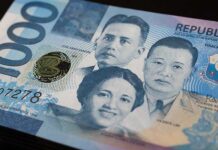Amid challenges from the pandemic, the Philippines remains an attractive option for foreign investors due to its strategic location and world-class pool of talent. The sprawling nation of more than 7,100 islands ranks as one of Southeast Asia’s favoured investment destinations, attracting over USD2.44 billion of foreign direct investment in the first quarter of 2022 alone.

Senior Partner
Cruz Marcelo & Tenefrancia
Tel: +632 8810 5858
Email: de.pedron@cruzmarcelo.com
Among the Philippines’ key trade partners, South Korea stands out among prolific investors, notably accounting for 18.5% of approved foreign investment in the past first quarter.
The Philippine Economic Zone Authority reported that at least 320 South Korean enterprises were registered as of September 2021, bringing close to USD985 million in investment and just over USD1 billion of exports.
The sturdiness of these steadfast ties has been exemplified even through the pandemic onslaught, with South Korea remaining the Philippines’ fifth-largest trading partner in 2020, as well as the seventh-largest export market and fourth-largest importer.
Focusing on new technologies and sustainability, the Philippines has now set its sights on strengthening its partnership with South Korea to drive the post-pandemic economic revitalisation of both nations.
REMOVING BARRIERS

Associate
Cruz Marcelo & Tenefrancia
Tel: +632 8810 5858
Email: ay.alegre@cruzmarcelo.com
A key consideration for South Korean investors in the Philippines is the foreign investment negative list, which is issued periodically pursuant to the Foreign Investments Act (FIA). This list specifies investment areas that are open to foreign nationals while differentiating those reserved for Filipinos.
However, to create a more competitive business landscape, the Philippines recently relaxed a number of laws that previously limited foreign participation in certain sectors. With recent amendments to the Public Service Act, most public services in the Philippines can now be 100% foreign-owned.
Most notably, public utilities previously limited to Filipino nationals have been opened to foreign ownership. These include airports, expressways and tollways, telecommunications, railways, and shipping.
Ownership of micro, small, and medium-sized enterprises (MSMEs) with paid-in capital of less than USD200,000 was also previously reserved for Philippine nationals. But under the amended FIA, foreign nationals can now own an MSME with a lower minimum paid-in capital of USD100,000, provided they utilise advanced technologies or qualify as startups or startup enablers. The amendments also reduce the hiring requirement of Filipino employees from 50 to 15 individuals.
South Korean retail investors should likewise note amendments to the Retail Trade Liberalisation Act, which previously limited the retail industry to Filipino nationals. Amendments to this law have now removed barriers to foreign entrants by reducing minimum paid-up capital requirements for foreign retail enterprises from USD2.5 million to just USD500,000. Minimum investment per store has also been lowered from USD830,000 to USD180,000 (PHP10 million).
Additionally, the amendments have even removed pre-qualification requirements such as proof of a company’s track record in retailing, which was previously required by the Philippine Board of Investments.
INNOVATION, TECHNOLOGY, SUSTAINABILITY

Associate
Cruz Marcelo & Tenefrancia
Tel: +632 8810 5858
Email: jc.cuevas@cruzmarcelo.com
Key investment areas the Philippine government envisions supporting the country’s transition from pandemic and financial crisis to drive economic growth into the future “new normal” are identified in its 2022 Strategic Investment Priority Plan (SIPP).
Emphasis is on high-technology advancements, sustainability and future-proof industries as building blocks for a robust economy in the post-pandemic world. In particular, key goals are “promoting green ecosystems, ensuring a dependable health system, achieving robust self-reliance in defence systems, and realising modern, competitive and resilient industrial and agricultural sectors”.
Tier I of the plan carries over activities from the 2020 Investment Priority Plan, which includes goods and services essential to pandemic response, mass housing, telecommunications, infrastructure and logistics, as well as activities in agriculture, fisheries and forestry.
Tier II focuses on industries for green ecosystems such as: electric vehicle assembly, renewable energy projects, energy storage technologies, bioplastics and biopolymers, and waste management, disposal and recycling; health-related activities such as vaccine manufacturing and speciality hospitals; industrial activities such as metals processing and oil refining; food security-related activities such as green and organic agriculture, integrated food production and processing, animal vaccine manufacturing and fisheries machinery and equipment; and defence-related activities.
Finally, tier III embraces research and development in advanced fields such as robotics, nanotechnologies, artificial intelligence, additive manufacturing, aerospace technologies and space-related infrastructure.
MAXIMISING AND PROTECTING INVESTMENTS
Investment in any of the SIPP tiers can also enjoy fiscal and non-fiscal incentives under the Corporate Recovery and Tax Incentives for Enterprises (CREATE) Act. These include income tax holidays, enhanced tax deductions and special corporate income tax rates.
Additionally, qualified enterprises are exempt from import duties on equipment and raw materials, and from value-added taxes on certain purchases. On the other hand, non-fiscal incentives include the ability to employ foreign nationals, along with access to streamlined customs and importation procedures.
The Philippines is optimistic about forging an even stronger economic partnership with South Korea, with anticipated conclusion of the Philippines-Korea Free-Trade Agreement in 2022.
This will herald additional economic benefits for investors from South Korea, enabling enterprises with easier market access for key goods embraced in the agreement, including reduced tariffs and duties on automotive components from South Korea and on agricultural products from the Philippines.
The free-trade agreement is also expected to include provisions on expedited customs procedures, trade remedies and dispute settlement all designed to ensure smooth and efficient operations of South Korean businesses transacting in the Philippines.
Alongside expansion of these trade relations is the Philippine commitment to providing protection to its trading partners.
Of special note, the Philippines is recognised for its strong IP protection framework. This effective regime not only assures investors such as South Korea that their products and processes are protected against counterfeiting or unfair competition, but also promotes unhampered transfer of technology.
The IP Office of the Philippines (IPOPHL) has established stronger mechanisms for IP protection and enforcement. These include law enforcement training, citizen reporting, private-sector partnerships for an efficient means to collect royalties, administrative and judicial adjudication of rights, and mediation as an alternative means of dispute resolution. The IPOPHL has also strengthened efforts to prevent the sale of counterfeit and pirated goods, in collaboration with the Philippine Retailers’ Association and various e-commerce platforms.
By institutionalising measures to actively prevent, identify, prosecute and eliminate IP violations, the Philippines is consistently excluded from the European Commission’s Counterfeit and Piracy Watch List, an annual report that flags markets where IP abuses are rampant or unmitigated.
Similarly, for the ninth consecutive year the Philippines is also excluded from the 2022 Watch List of the US Trade Representative’s annual Special 301 Report that monitors adequacy and effectiveness of trading partner protection and enforcement of IP.
This year’s report identified 27 countries on the watch list, but the Philippines was once again given a clean sheet, a clear testament to the security of the country’s IP system.
FUTURE IN THE PHILIPPINES
With a strategy centred on strengthening foreign alliances, advancing the technology sector and building green and sustainable industries, the Philippines continues to welcome partners from the region and beyond.
However, effectively navigating legal and regulatory requirements, and maximising the value of both tangible and intangible investments on foreign shores, may often be challenging, so the insight of experienced professionals is invaluable in determining the most appropriate strategy for a foreign investor’s business in the Philippines.

CRUZ MARCELO & TENEFRANCIA
9-12/F, One Orion,
11th Avenue corner University Parkway
Bonifacio Global City, Taguig City – 1634,
Metro Manila, Philippines
Email: info@cruzmarcelo.com
www.cruzmarcelo.com





























